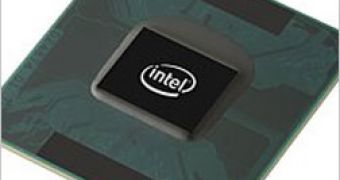The upcoming low-cost notebook processor from chip manufacturer Intel will break the manufacturer's multi-core tradition. Shortly put, the processor will go back in the good-old days when processors would ship with a single core.
Diamondville will be more or less similar in chip design to the Celeron processor, one of the chips that has not changed much until recently, when Intel decided to transform into a multi-core creature. The Diamondville will also be a single-core chip, and the reason is extremely obvious: according to Dean McCarron, founder and principal of Mercury Research, the Diamondville chip will power low power, low cost ultra-mobile computers, such as the upcoming Eee PC from Asustek. A single CPU core will pack less transistors, which means that the chip is cheaper to manufacture and will draw less battery power.
The Diamondville is "a clean sheet of paper design," according to McCarron. The energy-efficient 45-nanometer processor comes with an extremely simple design and can execute instructions following the "in-order pipeline", which means that the processor will temporarily stop executing the instructions in the queue each time it needs to fetch a result. The processor also features lower costs for packaging than its parent CPU, the Silverthorne.
The Diamondville processor is inexpensive, and that is why it will be the guest star of all the upcoming ultra-low cost notebooks, that will feature a price tag of around $250. The low-cost notebooks are expected to be initially shipped to the emerging markets, and the chip is likely to compete in terms of performance with the older Pentium-M processor.
However, Intel will make only one exception to the single-core rule for a desktop version of the Diamondville central processing chip, that will come in dual-core flavor. However, the specifications for the dual-core part are currently unknown.

 14 DAY TRIAL //
14 DAY TRIAL //